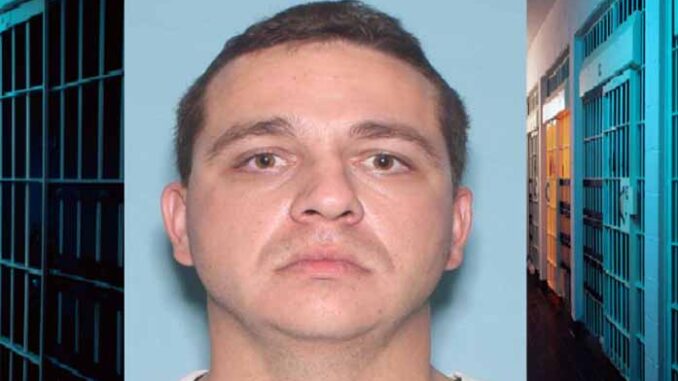
A Pima County man found guilty a few years ago of murdering his ex-girlfriend’s new boyfriend is entitled to a new trial unless the trial judge can justify why he allowed the state prosecutor to boot a woman of African descent from the jury pool.
The Arizona Court of Appeals recently ruled James Murray Reaves III raised “a sufficient objection” during his trial about the prosecutor’s use of a peremptory strike, or challenge, which until recently allowed a defense attorney or prosecutor to ensure a prospective juror was not empaneled.
Reaves, who is Caucasian, was convicted after a seven-day jury trial of breaking into the Tucson residence of a former girlfriend on Jan. 9, 2017 after spying on her and Damion Philipps, 38. Although Reaves came to the house with a metal bar, he stabbed Philipps 17 times with knives taken from the kitchen.
The woman suffered non-life threatening injuries during the attack, which earned Reaves a sentence of “natural life” followed by several more years in prison for burglary and aggravated assault.
On appeal, Reaves argued the trial judge erred by allowing the state’s prosecutor to peremptorily strike “the only African American on the juror panel” without ensuring the strike was being made for a non-discriminatory reason.
Court records show dozens of prospective jurors were summoned to the Pima County Superior Court for Reaves’ trial in August 2019. Two of the women in the jury pool were mental health professionals: one -a Black woman- held a PhD in clinical psychology while the other -a Caucasian woman- held a master’s degree.
Reaves’ defense counsel immediately raised a Batson challenge when the prosecutor used a strike on the woman with the PhD. The challenge is based on a 1986 U.S. Supreme Court ruling (Batson v. Kentucky) which addressed the widespread discriminatory exclusion of Black citizens from jury service.
The Bastion ruling is based on the Equal Protection Clause of the 14th Amendment to the U.S. Constitution which guarantees each prospective juror “the right not to be excluded from [a jury] on account of race.”
When a Batson challenge is made, a trial judge is required to go through a process designed to question the reason the prospective juror was struck. But that process was not followed in Reaves’ case, Presiding Judge Peter Eckerstrom wrote in the unanimous Feb. 16 appellate opinion.
Instead, the trial judge shut down the challenge by suggesting his own reasons why the state’s prosecutor would have used a peremptory strike.
“We conclude Reaves raised sufficient evidence the state’s strike was infected by purposeful discrimination to trigger the trial court’s duty to make a meaningful inquiry into the motive underlying the strike,” Eckerstrom wrote in the opinion, which also expressed concern with a derogatory comment the trial judge made about the woman who was the subject of the strike.
“Because we agree the court erred in fulfilling the constitutional obligations set forth by Batson and its progeny, we remand for the court to make findings consistent with this opinion,” Eckerstrom wrote. “On remand, the trial court shall hold a hearing to allow the state to present evidence as to its race-neutral reasons for the strike, and it shall determine whether the prosecutor violated Batson.”
If such a hearing does not enable the trial court to make “a sufficiently meaningful inquiry” or if the judge “concludes the strike injected impermissible discrimination into the jury selection process,” then Reaves’ convictions and sentences must be vacated and a new trial held, the opinion states.
On the other hand, if the prosecutor is able to provide the trial court with a legitimate non-discriminatory reason for the peremptorily strike then Reaves’ convictions and sentences will stand, Eckerstrom wrote.
However, Reaves’ case will not be heading back to Pima County Superior Court anytime soon, as each side has until March 16 to challenge the appellate ruling by filing a petition for review to the Arizona Supreme Court.
Any petition will put Reaves’ appeal on hold until the Supreme Court concludes its review. If no petition is filed, then the matter will likely be taken up by the trial court sometime in April or May.
In the meantime, Reaves remains in custody at the Arizona State Prison Complex-– Eyman in Florence.
Such peremptory strikes were banned by the Arizona Supreme Court effective Jan. 1, 2022. The new court rule does not affect an attorney’s ability to challenge a prospective juror for cause if it is shown the juror cannot decide a case impartially.

